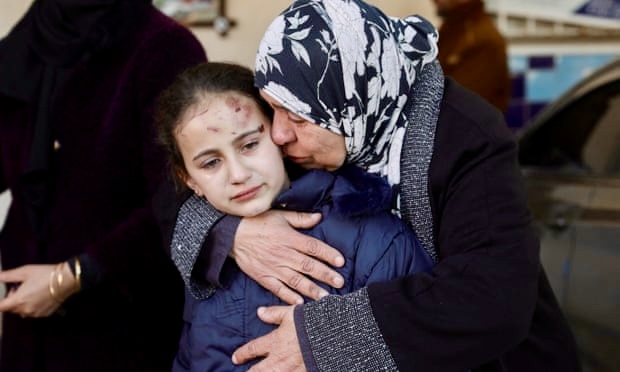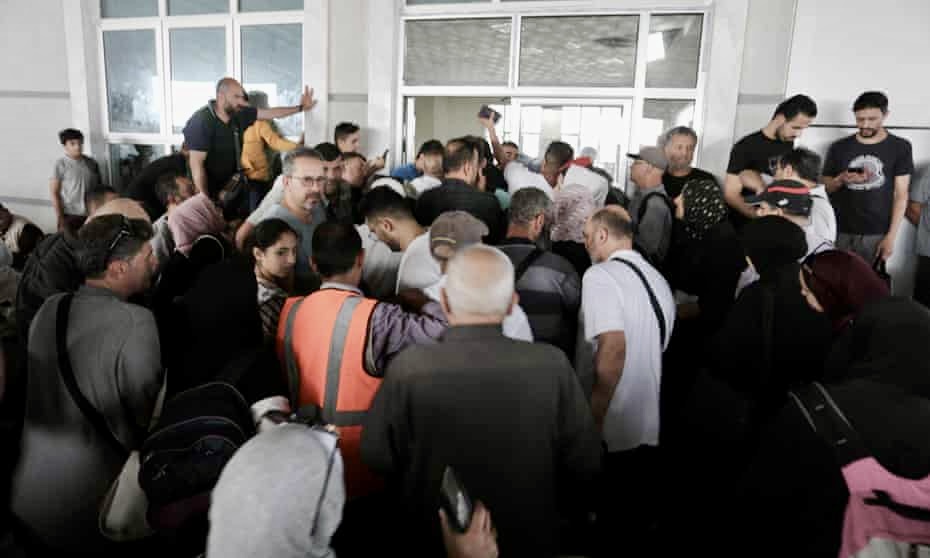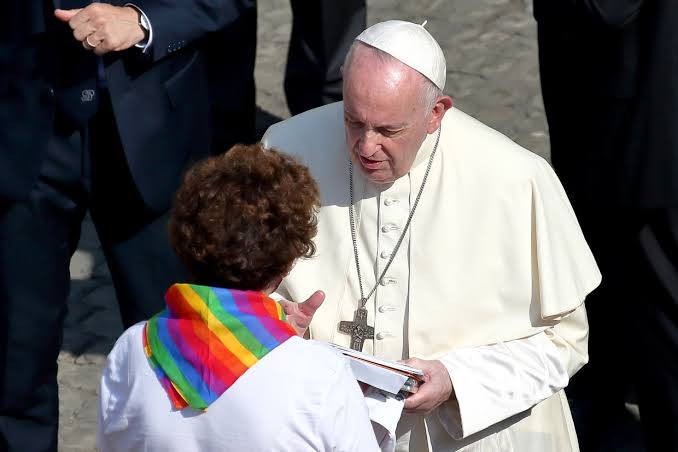
Faith Nyasuguta
Palestinians in Gaza, trapped in dire conditions, are reportedly resorting to desperate measures, paying hefty bribes, sometimes up to $10,000, to brokers facilitating their exit through Egypt, as revealed in a thorough investigation by The Guardian.
With the Rafah border crossing mostly closed, a network of brokers, allegedly linked to Egyptian intelligence, is taking advantage of those trying to get on the daily exit list.
Individuals seeking to leave Gaza are compelled to pay exorbitant “coordination fees,” and reports are emerging of arbitrary arrests and violence against those unable to meet these demands.
In a heartbreaking account, a man in the US disclosed paying $9,000 to get his family on the exit list, only to face an additional demand of $3,000 on the day of travel. This ruthless exploitation has triggered widespread condemnation, with one individual accusing the brokers of “trying to trade in the blood of Gazans.”
The Guardian’s investigation lays bare the operations of this network of brokers, primarily based in Cairo, which has been assisting Palestinians to leave Gaza for years. The conflict has seen prices surge dramatically, escalating from $500 per person to the current range of $5,000 to $10,000.
Individuals are resorting to launching crowdfunding campaigns to gather funds, and some have been informed that a quicker exit is possible if they pay even more. Social media platforms, particularly Facebook, are flooded with posts from desperate Palestinians seeking help to secure a spot on the exit list.
Despite the ongoing crisis and the pressing need for international assistance, Egypt has consistently resisted opening the Rafah crossing, citing potential security threats.
The UN reports that 85% of Gaza’s population is displaced, intensifying the humanitarian crisis. The situation brings attention to Egypt’s role in negotiations over Gaza, as concerns about a mass influx of people have led Cairo to maintain a restrictive border policy.
Individuals interviewed by The Guardian disclosed that they were connected with brokers through contacts in Gaza, and payments are typically made in cash, sometimes through intermediaries based in Europe and the US. The escalating prices demanded by brokers during the conflict raise ethical questions about profiting from the desperation of those suffering in Gaza.

The role of the US government in assisting its citizens to leave Gaza has also come under scrutiny. Despite initial restrictions limiting assistance to immediate family members, subsequent expansions of support have left some feeling neglected. Individuals like Belal Baroud, a US citizen, are grappling with immense financial demands to secure the safety of their family members.
This alarming situation underscores the immense challenges associated with handling migration crises, emphasizing the delicate balance between national interests, human rights, and international obligations.
It serves as a distressing reminder of the lengths people are forced to go to escape conflict and dire conditions, highlighting the urgent need for international intervention and a comprehensive approach to address the underlying issues fueling such crises.
RELATED:




